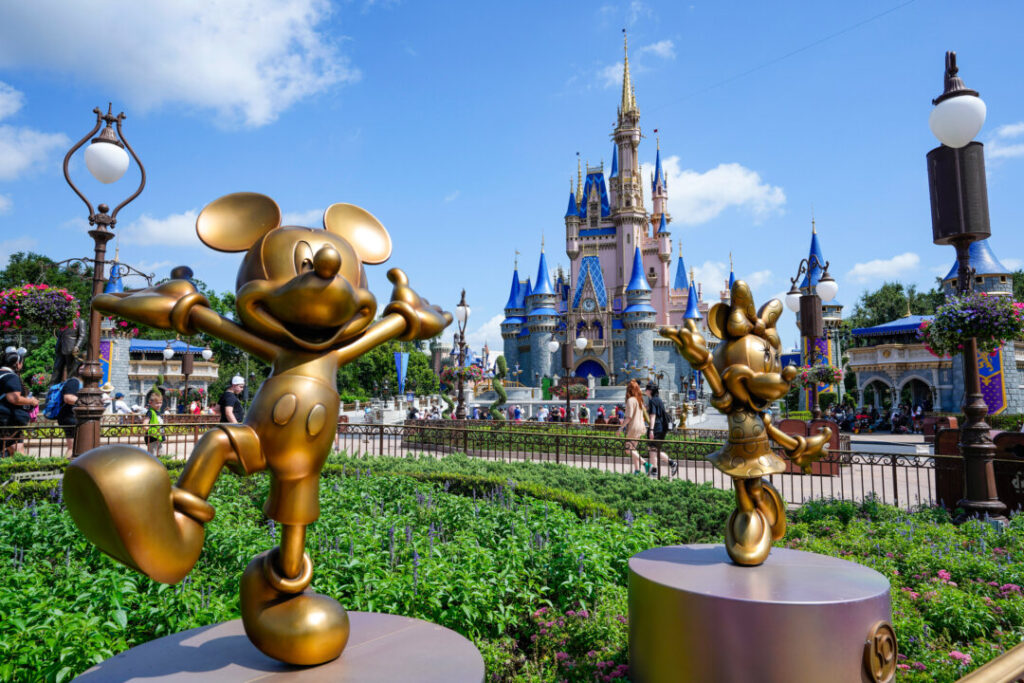Stocks of the entertainment giant surged more than 10% during trading on the morning of May 7th.
News Analysis
Walt Disney Company stocks surged during trading on the morning of May 7 after reporting solid results for the second quarter of fiscal year 2025. The results denied concerns about slowing consumer spending. The company has also announced plans to open its first theme park in the Middle East.
Pre-tax revenue was $3.1 billion, up from $0.7 billion the previous year, total operating profit increased by 15%.
Operating profits have been robust across all segments led by domestic parks and experience, increasing 13% to $1.8 billion, while consumer products have grown 14% to $0.4 million.
Additionally, the company has given a robust outlook for the rest of the year, led to an increase in operating income of 18% in the sports segment, a double-digit percentage increase in the entertainment segment, and a growth rate of 6% to 8% in the experience segment.
These solid results came after a series of disappointing reports due to the company’s struggle to compete effectively with Netflix, a pioneer in video streaming, which has seen a significant increase in subscription services and revenue.
Wall Street raised its shares by more than 10% during the morning session on May 7th.
Beyond Wall Street, solid results from Disney’s theme park business segment confirm that consumers generously spend on discretionary services, against recent pessimistic forecasts from the University of Michigan and the meeting committee of the imminent collapse of consumer spending.
Disney CEO Robert A. Igar, who attended a revenue call from the United Arab Emirates, announced that the company has reached an agreement with the country to build a Disney theme park in Abu Dhabi.
This will be the company’s seventh Disney theme park resort. Funded, constructed and operated by Abu Dhabi Morale Groups, Disney oversees the design, licenses IPs, and provides operational expertise.
“With the addition of cruise ships, we are much more accessible to hundreds of millions of people than in the past,” Iger said.
Regarding the strong second quarter results, Iger attributed the company’s turnaround to the effective implementation of the strategy.
“Unbeatable performance this quarter adjusted for a 20% increase (earnings per share) from the previous year driven by the entertainment and experience business, but introduces the construction of continuous success for growth and execution across strategic priorities,” he said in a statement.
At the same time, Igar spoke positively about the company’s future.
“Following the excellent first half of the fiscal year, we look forward to even more, including the upcoming Theatre Slate, the launch of ESPN’s new DTC products and an unprecedented number of expansion projects in the experience segment,” he said.
“Overall, we are optimistic about the company’s direction and the outlook for the remainder of the fiscal year.”
Commenting on the performance of various business segments during revenue conference calls, Iger dismissed concerns raised by several consumer product companies in recent weeks about the challenging macroeconomic environment.
“In spite of questions about macroeconomic uncertainty and the impact of competition, we are encouraged by the strength and resilience of our business, as evidenced by these revenues and later bookings at Walt Disney World,” he said.
“The entertainment business, including films, television series, and news continues to bring about strong growth. Features films continue to enjoy success at the global box office.”
Georgios Koimisis, an associate professor of finance at Manhattan University, responded positively to Disney’s reporting.
“Overall, Disney reported strong revenue this quarter due to increased spending in US parks and increased profits from streaming services,” he told the Epoch Times in an email.
However, he expressed skepticism about the company’s performance at the International Parks. This was weakened primarily due to reduced attendance costs and higher operating costs.
“One of the important concerns is the risk of new tariffs,” he said. “Taxes push consumer prices up and make them less likely to spend on travel, entertainment or subscriptions.”
If the US imposes tariffs on imports and media, this could raise the costs of Disney, especially goods, technology and production equipment, he said.
“Retaliation tariffs from other countries can also hurt Disney’s overseas film revenue, especially in large markets like China,” he said.
Hugh Johnston, Disney’s Senior Vice President and Chief Financial Officer, has given away a bright forecast for the theme park.
“Current bookings for Walt Disney World for the third quarter are up 4%,” he said. “And that’s about what we say. Since then, bookings have increased by 7% in the fourth quarter.”



